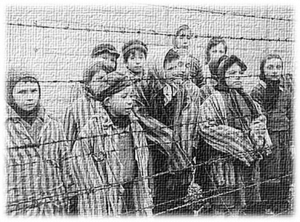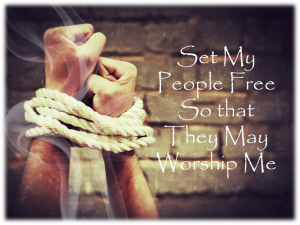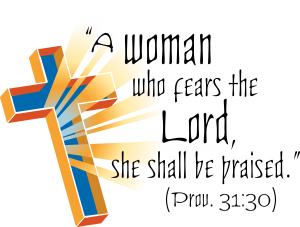EXODUS 1 – When Execution Is An Option
 In 2015, the BBC ran a story about Dorit Oliver-Wolff – a five-year old Jewish girl caught up in WWII genocide. She escaped execution twice then, bizarrely enough, went on to become a “pop-star” in post-war Germany![a] Her story is seriously surreal. But with the memory of WWII disappearing swiftly into archived history books, soon to be forgotten on dusty shelves, the UK Education system put a spotlight on the past again for the next generation of students.[b]
In 2015, the BBC ran a story about Dorit Oliver-Wolff – a five-year old Jewish girl caught up in WWII genocide. She escaped execution twice then, bizarrely enough, went on to become a “pop-star” in post-war Germany![a] Her story is seriously surreal. But with the memory of WWII disappearing swiftly into archived history books, soon to be forgotten on dusty shelves, the UK Education system put a spotlight on the past again for the next generation of students.[b]
Then with new horror stories immerging from ISIS, the real concern is that if we don’t learn in peacetime what is right and wrong (especially learning from the past), it would be difficult for most of us to imagine what moral choices we would make under duress, or what moral choices that our sons and daughters would make if faced with immanent death.[c] So, far from being an outdated 3,500-year-old story from life in Ancient Egypt, today’s chapter is essential reading yet again and the focus is on two young midwives.
They were young women without children, much like our own daughter. While they walked to work together, perhaps they were chatting about the babies they helped to deliver on the day before. Then suddenly and quite unexpectedly, the greatest storm imaginable slammed into their lives! Reading between the lines, what happened next went something like this…
 Still with the smile on their lips from the last happy thought, they were seized without warning and whisked away to the royal palace. Trembling violently with the shock, yet trying not to show it, they caught sight of the terror in each other’s eyes as they were forced to their knees in the presence of Pharaoh. Slightly relieved that he wasn’t after their heads, the girls were told of their gruesome mission. With a “commission to kill” mandate, every male baby that they helped into this life had to be murdered before its mother recovered enough from her labour so as to intervene. Amazingly enough, Pharaoh seemed to not make them swear an oath to obey. He just assumed they wouldn’t dare disobey him.
Still with the smile on their lips from the last happy thought, they were seized without warning and whisked away to the royal palace. Trembling violently with the shock, yet trying not to show it, they caught sight of the terror in each other’s eyes as they were forced to their knees in the presence of Pharaoh. Slightly relieved that he wasn’t after their heads, the girls were told of their gruesome mission. With a “commission to kill” mandate, every male baby that they helped into this life had to be murdered before its mother recovered enough from her labour so as to intervene. Amazingly enough, Pharaoh seemed to not make them swear an oath to obey. He just assumed they wouldn’t dare disobey him.
But the minds of the girls were reeling as they made their journey in silence back to their abduction point. Upon being released into the street by Pharaoh’s guards, they escaped into the nearest alleyway then burst into uncontrollable tears. Shaking violently and crying hysterically into each other’s arms, they found a mutual trust. Live or die, neither one could mercilessly destroy the life of a child created in the image of God. Neither one could heartlessly look into the face of his mum and say it was a still-birth.
The might of Pharaoh and the thought of certain execution seemed to diminish as they gazed upon the tear-stained face of their friend. When execution had become a very real option, they seemed to gain mutual strength in their unspoken conclusion: it was better to be killed than to kill. With spirits in unison, neither one could risk “the wrath of God” upon them – not after their ancestor had personally seen the destruction of Sodom and Gomorrah with fire and brimstone falling from the sky![d] But what can be learnt from the opening scene of this Second Act in the world’s longest running drama?
First, no matter how many centuries have gone by, our omniscient (all-knowing) Creator still knows every detail and He doesn’t forget. If He knows the names of those who went down to Egypt and if He knows the numbers and who they were related to [v1-5] – information that we write off as boring trivial – then He certainly knows every detail about me and about you. Nothing, not even the smallest detail, is outside His knowledge, notice, or retained memory, even millenniums after it happened.
 Secondly, when the Children of Israel were mistreated and forced into slave labour, it wasn’t an unexpected event. [v8-14] Father God knew centuries earlier when he told Abraham what would happened as part of the family inheritance.[e] In other words, if you want to lay claim to Abraham’s Blessing, you need to be ready for the whole of the Creator God’s Global MasterPlan – including the hard to understand bits, and the crucibles He uses for refining pure gold in our lives.
Secondly, when the Children of Israel were mistreated and forced into slave labour, it wasn’t an unexpected event. [v8-14] Father God knew centuries earlier when he told Abraham what would happened as part of the family inheritance.[e] In other words, if you want to lay claim to Abraham’s Blessing, you need to be ready for the whole of the Creator God’s Global MasterPlan – including the hard to understand bits, and the crucibles He uses for refining pure gold in our lives.
And thirdly, the problem that Pharaoh faced wasn’t that the Israelites were bad people. It was the fact that Father God was accomplishing what He promised Abraham – increasing their numbers. This is what got them into trouble! [v9-12] Weirdly enough, similar thoughts seemed to be behind Hitler’s actions in pre-WWII Germany.
Now we sit together in the 21st Century, and almost four millennia later we read the names of two insignificant girls in a slave population. [v15] I wager that there isn’t a document on earth from ancient times that gives us this level of detail! Why would the names of these two childless women from a population of slaves be important, except that the Creator God says so. He made sure that history, which is HIStory, was recorded and miraculously preserved for us to freely read today. The One who determines the number of the stars and calls them each by name[f], remembered the names of these girls even in the 4th millennium after they died. If so, then He knows you and He knows me.
 Because these girls feared God, He showed kindness to them by giving them families of their own, but that was the very thing that Pharaoh was angry about! [v20-21] Thankfully, Pharaoh didn’t lop of their heads for their blatant disobedience! With execution hanging in the air, today’s chapter ends with yet another example of how the definition of “blessing” and “kindness” from the Creator’s perspective, is influenced by or dependent on what’s going on around us. He will often defy our circumstances and confound our logic as He gives us parts to play in His eternal story.
Because these girls feared God, He showed kindness to them by giving them families of their own, but that was the very thing that Pharaoh was angry about! [v20-21] Thankfully, Pharaoh didn’t lop of their heads for their blatant disobedience! With execution hanging in the air, today’s chapter ends with yet another example of how the definition of “blessing” and “kindness” from the Creator’s perspective, is influenced by or dependent on what’s going on around us. He will often defy our circumstances and confound our logic as He gives us parts to play in His eternal story.
Scene One of Act Two is this epic Play closes with Pharaoh ordering the indiscriminate deaths of every male Israeli born in his country. This is the account of the first act of Genocide to be recorded in human history. Bizarrely enough, this and the greatest act of genocide in the history of mankind (WWII), both involved the same people group …chosen and blessed by God… Now that’s a thought…
CLICK to return to today’s “Daily Breadcrumbs”
[a] http://www.bbc.co.uk/news/uk-england-30985733
[b] http://www.bbc.co.uk/news/education-35384417
[c] Micah 7:5-6 (Context v1-7)
[d] Genesis c18-19:29
[e] Genesis 15:13
[f] Psalm 147:4